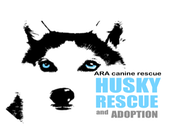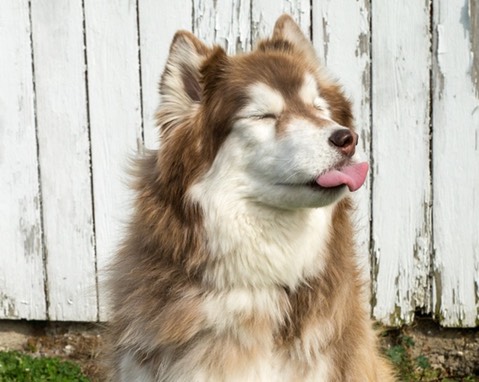Proper dental care is important for your husky.
We spoke with Dr. Damon Goldstein, founder of Animal Hospital in Walnut, California, to learn more about proper dental care for your dog.
“Gum disease is usually silent,” says Goldstein. “When it starts there are no outward signs and symptoms. Yet once it advances, gum disease can devastate your dog's mouth, causing chronic pain, eroded gums, missing teeth, and bone loss -- a fate hardly fair to man's best friend. Fortunately, it doesn't have to be that way. It can be prevented.”
Adults dogs have 42 permanent teeth, compared to 32 teeth in the adult human mouth. Puppies have 28 teeth, humans babies have 20.
By the time they are three years of age, most dogs have some evidence of periodontal disease. 75% of canine companions have gum disease by the time they reach middle age. Besides causing problems in Fido's mouth, periodontal disease can also cause damage to Fido's internal organs, so it is important that it be treated.
Says Goldstein, “Unfortunately, other than bad breath, there are few signs of the disease process evident to the owner, and professional dental cleaning and periodontal therapy often comes too late to prevent extensive disease or to save teeth.”
“Periodontal disease begins when bacteria in the mouth form a substance called plaque that sticks to the surface of the teeth. Subsequently, minerals in the saliva harden the plaque into dental calculus (tartar), which is firmly attached to the teeth,” Goldstein explains.
“Periodontal disease includes gingivitis (inflammation [reddening] of the gums) and periodontists (loss of bone and soft tissue around the teeth). It often cannot be properly evaluated or treated without general anesthesia. It can lead to fractures of the jaw following weakening of the jaw bone, and bone infection (‘osteomyelititis’). Bacteria from the mouth can enter the bloodstream and are carried around the body,” explains Goldstein.
Dr. Goldstein said there are several signs that Fido may have periodontal disease. These include:
Bad breath (halitosis)
Broken tooth/teeth
Excessive drooling
Reluctance to eat, especially dry food, or to play with chew toys
Chewing with or favoring one side of the mouth
Pawing at or rubbing the muzzle/mouth
Bleeding from the mouth
Loss of symmetry of the muzzle and/or lower jaw
Swollen/draining tracts under (or in front of) the eye
Sudden change in behavior (aggressive or withdrawn)
Chronic eye infections or drainage with no exact cause or cure
Inability to open or close the mouth
Chronic sneezing
Discolored tooth/teeth
Abnormal discharge from nose
A mass/growth in the mouth
Goldstein says that many foods can help fight periodontal disease. “The Veterinary Oral Health Council (VOHC) has reviewed many of the foods and treats that are made for reducing plaque on the tooth's surface. These foods are required to be balanced, with the same nutrient content as regular foods, but with the additional formulations that make them capable of cleaning teeth. Look for foods with the VOHC seal of approval on the package.”
How You Can Help Fido Fight Periodontal Disease
It should come as no surprise that the best way to fight periodontal disease is for Fido to brush his teeth each day. That means we pet parents must do the brushing, of course.
Says Goldstein, “Almost all dogs will eventually accept brushing. The key to success is to be patient and gradual in your approach, brushing mainly the outsides of the “cheek teeth” located under the upper lip. A dog that resists brushing frequently may have painful areas in the mouth that need to be addressed.”
It is best to use pet-specific toothpastes. They come in flavors that dogs love, including chicken and seafood. Make sure to avoid human toothpastes as they can contain abrasives and high-foaming detergents that should not be swallowed or inhaled by dogs.
If you can't see brushing your dog's teeth yourself, try chlorhexidine oral rinse and gel. This antiseptic fights tartar and is safe for pets. You apply it by squirting a small amount on each side of Fido's mouth. You apply the gel by smearing it on your dog's teeth.
Rawhide products and chew treats, when chewed daily, can be helpful in preventing periodontal problems as well. Many have anti-plaque ingredients. Avoid giving Fido cow hooves and hard nylon products. These hard products can actually cause broken teeth or damaged gums.
Some pet insurance plans even cover dental problems. You should always do your own research as to which plan is best for you.
We thank Dr. Goldstein for sharing his expertise. Dr. Goldstein is a Board Certified Specialist in Canine and Feline Practice and certified by The American Board of Veterinary Practitioners (Diplomate ABVP). http://www.vetnpets.com/
F. Colin Kingston

